
Politics
10:30, 05-Jul-2017
China, Russia warn of possible 'armed conflict' over DPRK
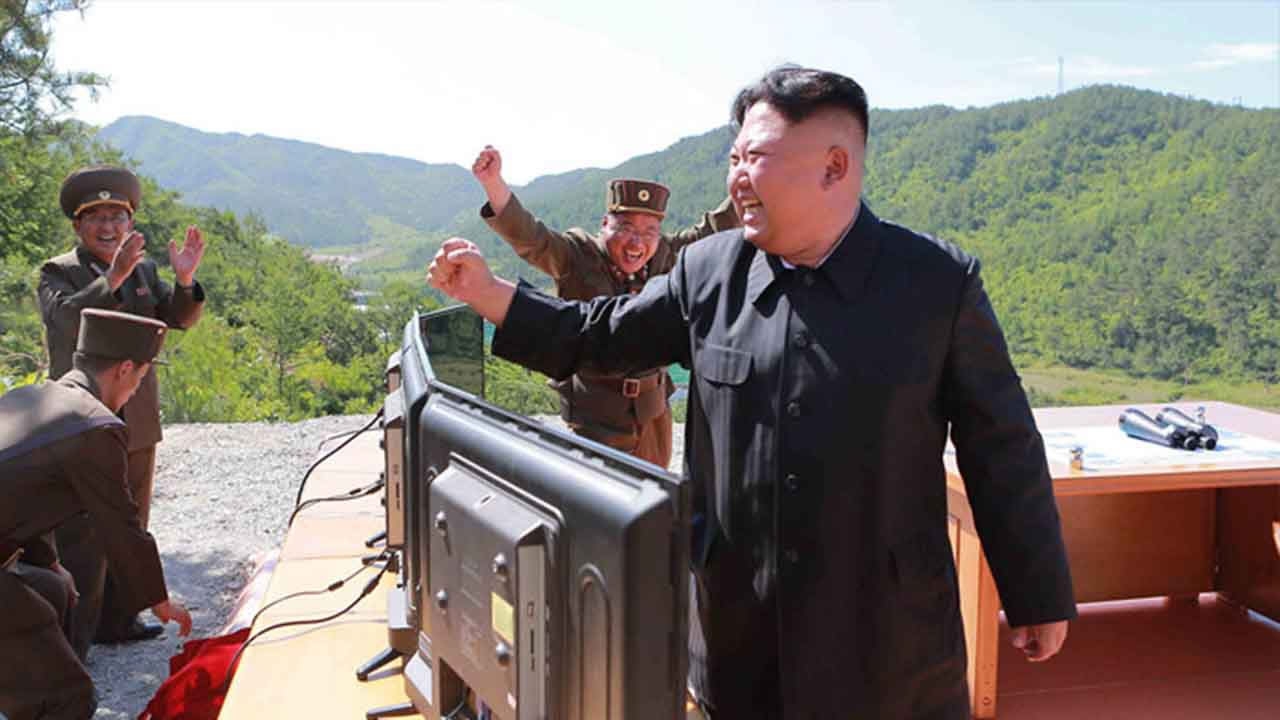
China and Russia are gravely concerned about the latest ballistic missile launch by the Democratic People's Republic of Korea (DPRK) and reiterated their opposition to the deployment of the Terminal High Altitude Area Defense (THAAD) system in South Korea, according to a joint statement by the Chinese and Russian foreign ministries on Tuesday.
Chinese President Xi Jinping and Foreign Minister Wang Yi met with their Russian counterparts Vladimir Putin and Sergei Lavrov in Moscow respectively. The two sides urged relevant parties to avoid any provocation and make positive efforts toward easing escalating tensions on the Korean Peninsula.
The DPRK claimed it successfully tested its first "intercontinental ballistic missile" (ICBM) on Tuesday. The United States and Russia initially said it was just a medium range missile, but late Tuesday US Secretary of State Rex Tillerson released a statement, referring to it as an ICBM.
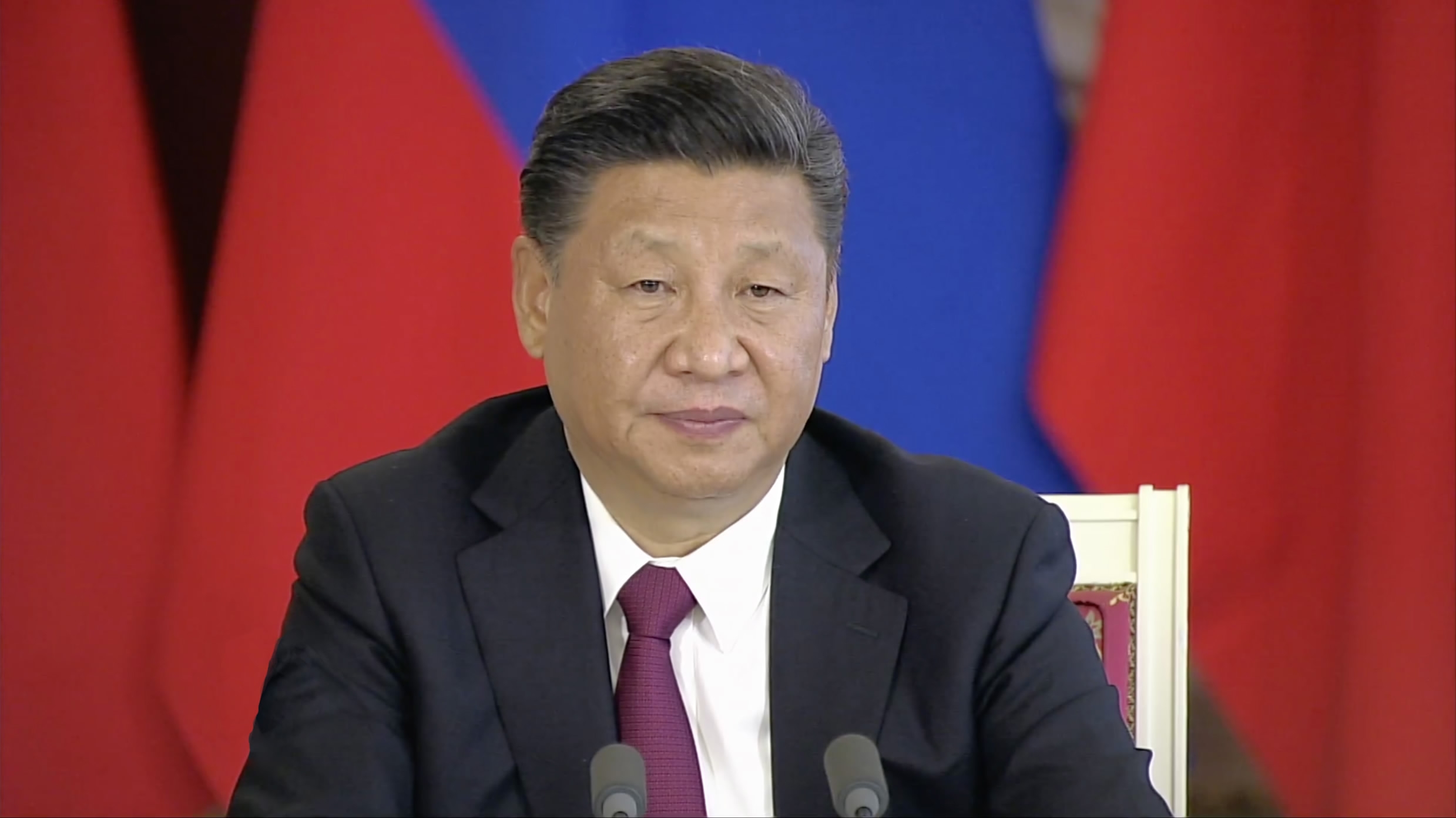
DPRK's missile launch 'unacceptable'
The statement by the Chinese and Russian foreign ministries described the DPRK's missile launch as "seriously against relevant UN Security Council resolutions" and "unacceptable" to both China and Russia. The two nations "strongly urge" the DPRK to abide by relevant resolutions by the Security Council.
"The escalation of political and military tensions in the region may lead to armed conflicts," the statement said. "The international community should take joint measures to resolve the issue through dialogue and communication."
China and Russia called on relevant countries to remain restrained and show a willingness for "unconditional dialogue".
After his meeting with South Korean President Moon Jae-in last Friday, US President Donald Trump said the era of "strategic patience" with the DPRK government had ended.
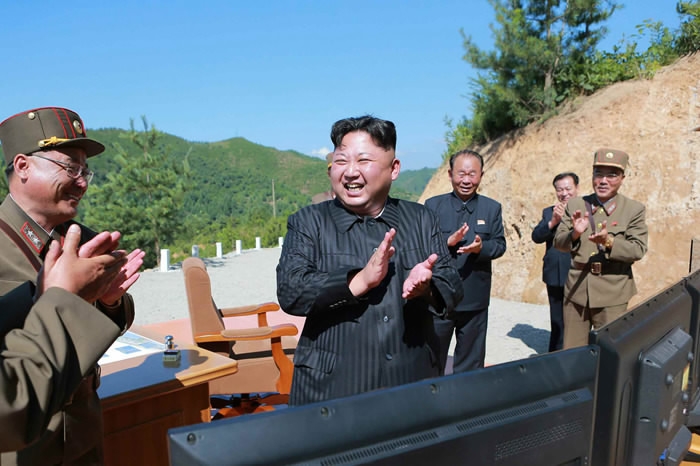
DPRK leader Kim Jong Un (L2). /VCG Photo
DPRK leader Kim Jong Un (L2). /VCG Photo
In their statement, China and Russia suggested that the DPRK announce the suspension of its nuclear and ballistic missile tests, while the US and South Korea suspend their large-scale joint military exercises.
All relevant parties should then start negotiations at the same time and establish general principles for their relations, including non-use of arms, non-aggression as well as peace and coexistence, according to the Chinese and Russian suggestion.
The parties should be committed to the goal of denuclearization of the Korean Peninsula and strive to resolve the nuclear issue alongside all other disputes, the statement said.
China and Russia called for the establishment of a peace and security mechanism for the Korean Peninsula and Northeast Asia during negotiations, and an ultimate normalization of relations between relevant countries.
Meanwhile, China and Russia stressed that the DPRK's "reasonable concerns" should be respected.
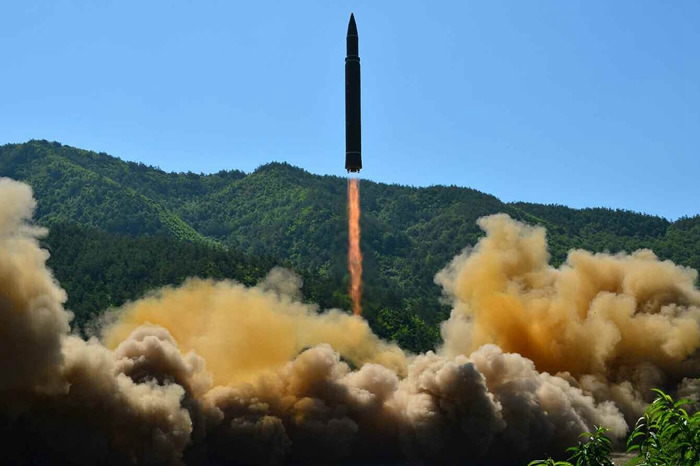
The DPRK claims it successfully tested its first "intercontinental ballistic missile" (ICBM) on July 4, 2017. /VCG Photo
The DPRK claims it successfully tested its first "intercontinental ballistic missile" (ICBM) on July 4, 2017. /VCG Photo
THAAD 'gravely harms' Chinese, Russian strategic interests
China and Russia urged relevant countries to stop and cancel the deployment of THAAD in South Korea immediately, calling for concrete measures to maintain regional strategic balance.
The US started installing THAAD in South Korea earlier this year and said it was aimed at countering threats from the DPRK. The move has been strongly opposed by the DPRK, China and Russia, as well as by tens of thousands of protesters in South Korea.
The statement said the US anti-missile system gravely harms the strategic security interests of China and Russia, and will not help the denuclearization process of the peninsula as well as regional peace and stability.
"The two sides reiterate that they attach great importance to maintaining international and regional balance and stability, and emphasize that the alliance between relevant countries should not harm the interests of a third party," China and Russia said in their statement.
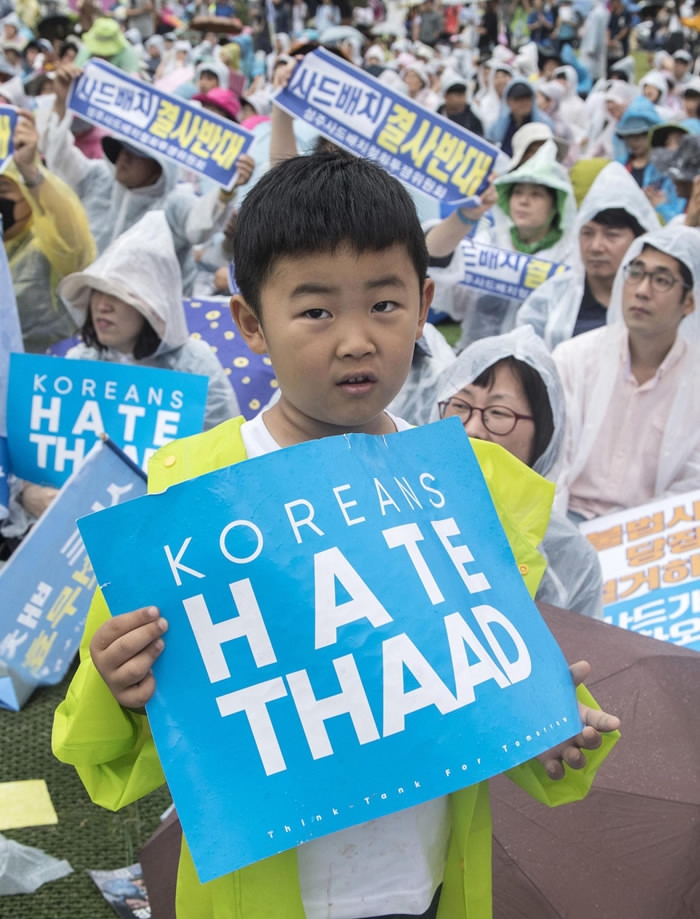
South Korean protesters rally against the deployment of THAAD in South Korea outside the US embassy in Seoul, June 24, 2017. /VCG Photo
South Korean protesters rally against the deployment of THAAD in South Korea outside the US embassy in Seoul, June 24, 2017. /VCG Photo
Trump described the US-South Korea alliance as "a cornerstone of peace and security in a very, very dangerous part of the world" last Friday during a joint press briefing with his South Korean counterpart.
China and Russia stressed that they oppose "a power from outside the region" reinforcing military deployment and existing in Northeast Asia, using the DPRK nuclear and missile program as an excuse.
'China, Russia good example of relations between major countries'
During a press conference with Putin on Tuesday, Xi remarked on how he had made more trips to Russia as president than to any other country.
The Chinese president spoke highly of bilateral ties, saying the two countries are an example of good relations between major countries.
The two presidents signed joint statements on cementing ties. During talks, Xi invited Putin to attend this year's BRICS summit in Xiamen, in southeast China's Fujian Province, in September.
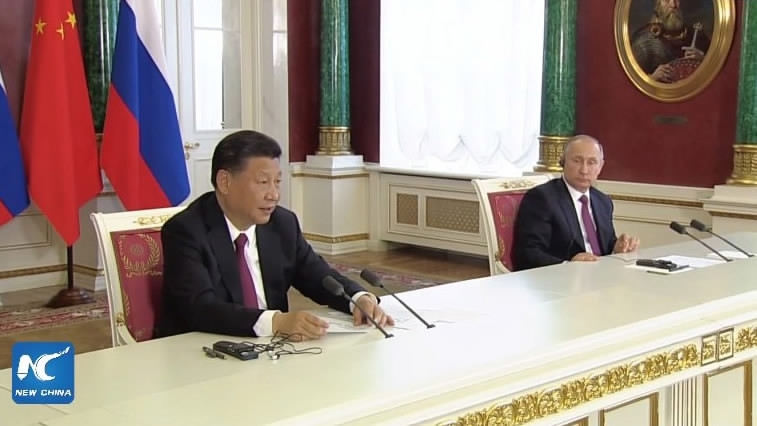
Chinese President Xi Jinping (L) and his Russian counterpart Vladimir Putin during a joint press conference in Moscow, Russia, July 4, 2017. /Xinhua Photo
Chinese President Xi Jinping (L) and his Russian counterpart Vladimir Putin during a joint press conference in Moscow, Russia, July 4, 2017. /Xinhua Photo
Apart from issues on the Korean Peninsula, Xi and Putin also exchanged views on a number other topics such as the situations in Syria and Afghanistan.
The two leaders said all parties concerned should respect Syria's sovereignty, and support an independent and comprehensive investigation into the alleged use of chemical weapons in the country.
They denounced the use of chemical weapons by any country.
Speaking of the situation in Afghanistan, Xi and Putin expressed worries over the expansion of extremist terrorist groups such as ISIL in the Central Asian country.
Russia highly praised China's latest shuttle diplomatic efforts with Pakistan and Afghanistan, saying the moves would improve the two neighbors' relations and promote domestic reconciliation in Afghanistan.
5801km
Related stories:

SITEMAP
Copyright © 2018 CGTN. Beijing ICP prepared NO.16065310-3
Copyright © 2018 CGTN. Beijing ICP prepared NO.16065310-3